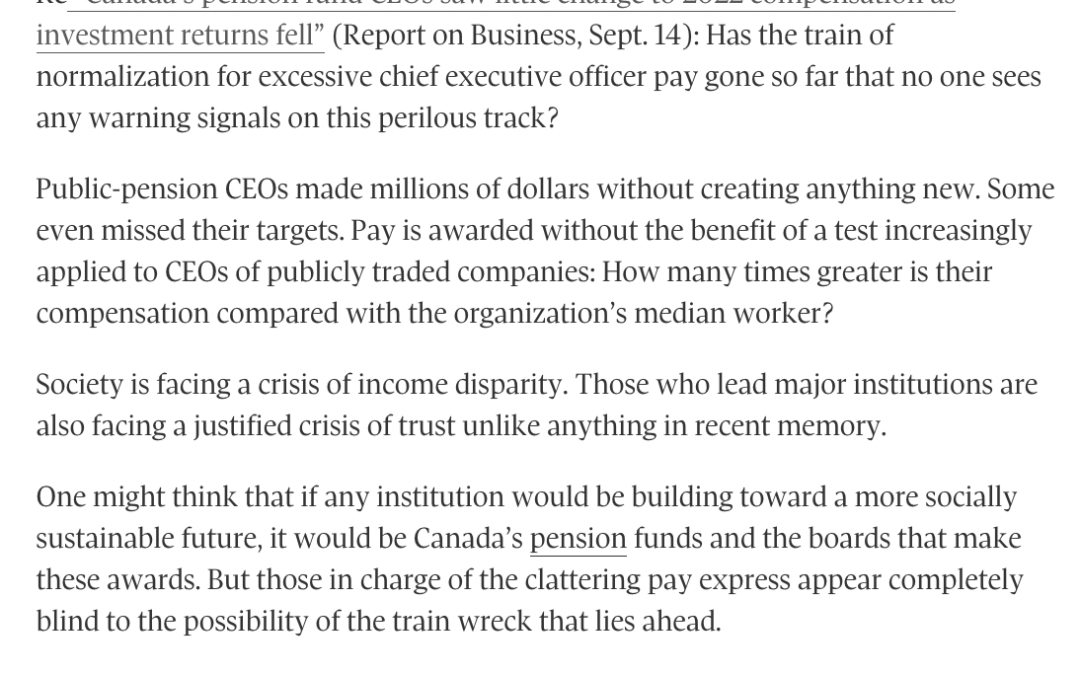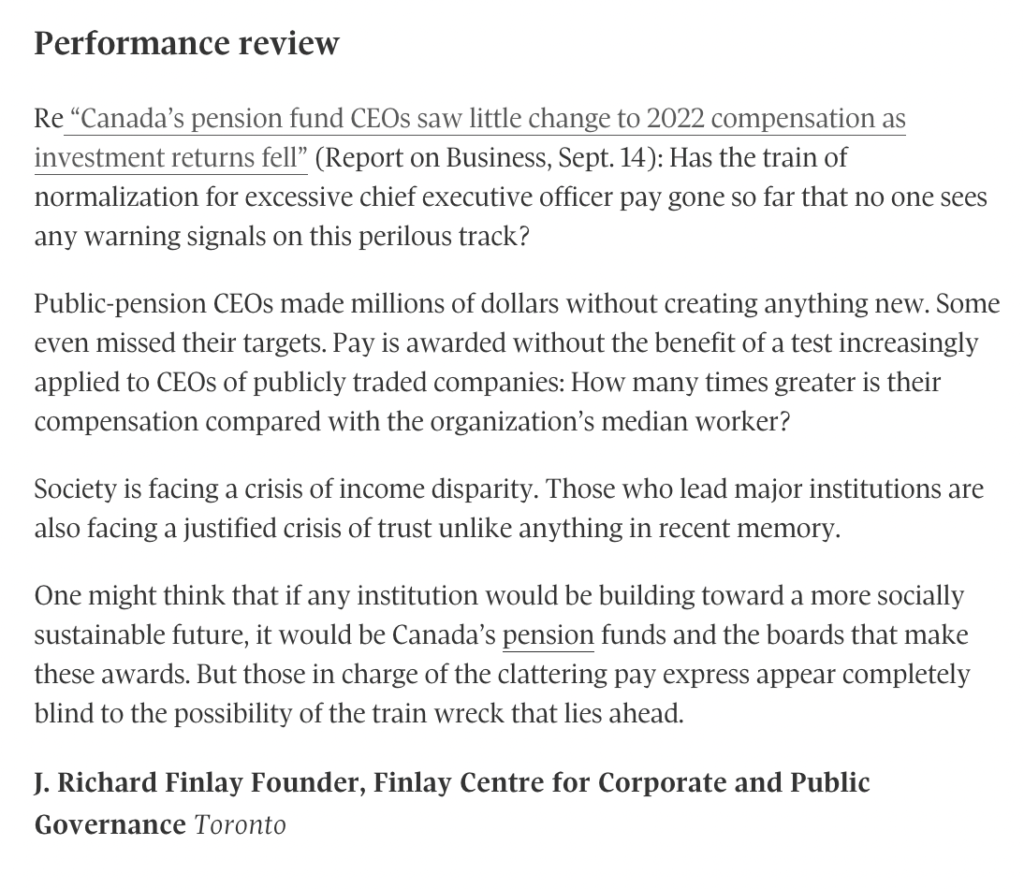 A few thoughts now on Sherritt International Corp., whose “S” listing symbol on the TSX gives a glimpse into its once storied place in Canadian mining. There was a time when the company was worth billions and was a member of the S&P/TSX composite index. With those days long past, it’s worthwhile to examine some of the corporate governance practices of this penny stock company.
A few thoughts now on Sherritt International Corp., whose “S” listing symbol on the TSX gives a glimpse into its once storied place in Canadian mining. There was a time when the company was worth billions and was a member of the S&P/TSX composite index. With those days long past, it’s worthwhile to examine some of the corporate governance practices of this penny stock company.
I realize executive compensation at Sherritt has received passing marks from some proxy advisory firms and has won approval by shareholders under the say on pay provision. The Finlay Centre for Corporate & Public Governance has been asked by several shareholders to take a second look owing to the company’s history and underperformance. We think there are some points worth making.
The three-member compensation committee seems weak. It has two members who are in the business of consulting to other mining companies. Where they stand on CEO pay can have an impact on that business. Their bios claim experience in compensation matters. But they don’t say how. The explanation for CEO pay is gobbledygook to most readers. It defies rational analysis by anyone who doesn’t have a PhD in physics, which is why it is presented this way. I say physics because of the unusual gravitational force in CEO pay that pushes it up and up with little explainable justification. Confusion, not clarity, is the goal. I have been pressing US regulators to take action to demand simpler and more readable explanations for the past 10 years. The Ontario Securities Commission is nowhere on that page.
So, for a company whose stock has been languishing around 46 cents, and has reached a high of only 63 cents briefly in the past year, Sherritt’s seven outside directors were paid an average of $276,038 for 11 board meetings and occasional committee meetings that would have occurred the same day. That’s not a bad gig. The compensation committee met six times. In that time, they decided Leon Binedell, president and CEO since 2021, perfectly met all targets and was fully entitled to $2,649,975. What do you suppose that figure represents in comparison to the median Sherritt worker? If he was paid $3 million for this performance, how much would he have been paid if the stock actually rose to one dollar? I doubt if those questions would ever enter the mind of anyone on the board.
The figure is high for what shareholders are getting. But that is the case with most CEO awards because bias and a tilted playing field (of, by and for corporate elites) are built into that process.
Bottom line: when the board and top five executive officers are awarded a total of nearly $8 million as custodians for what has been a long-time penny stock company whose share value appears to have little chance of breaking a buck in the short- term, corporate governance is not doing what it is intended to do.
I am always wary when I see a cut and paste approach to the discussion of executive compensation. For each of the top five officers, the following was noted in their review: “_____ was successful in delivering on his (her) goals and the compensation decisions considered his (her) achievements in 2022. The Human Resources Committee did not make any adjustments to the calculated short-term incentive formula. Equity incentives were awarded at target.”
Just fill in the blank for the name and you have the same outcome. I was the first to point out that for many years, now defunct Bear Stearns used exactly the same language to describe the compensation performance of its top officers. It was one of the reasons I asked at the time Does Bear Stearns Really Have a Board? You can read my two part series on that here.
I was also struck by the lack of discussion about ESG in the company’s disclosures. While I am a critic of many aspects of current ESG practices, which are riddled with confusion and inconsistency, I am taken aback that for a company in the mining business in 2022, the discussion of the CEO’s key results (p. 67) did not mention a word about ESG or climate. It is surprising that none of his compensation was tied to any ESG benchmark. So you have to ask how seriously they are taking ESG, as it would seem there is no built-in incentive at the CEO level to improve outcomes (and perhaps ratings).
On that subject, one rating agency scores the company a “B” while and another gives it 46 percent. I have no idea how these ratings were determined. The material in the company’s sustainability report mixes benchmark performance with highly aspirational language and does a lot of check-the-box reporting.
One last point on compensation. The current management information circular indicates the company plans to return to stock options in 2023.This practice was discontinued by Sherritt in 2018-2019, as it was for other mining companies. But there is no coherent explanation for the change in the company’s disclosures. This is not sound compensation practice.
The Globe and Mail’s David Milstead has some thoughts on the compensation boondogglefor Sherritt’s previous CEO, David Pathe. Mr. Milstead notes “Of the 43 current diversified metals and mining companies listed on the TSX that also traded over this exact period, Sherritt ranks 36th, according to S&P.
Somebody has to speak up for sanity in CEO pay and for sound governance when its clearly missing. It’s not that frequent a voice these days, as so many shareholders have said in a number of emails to The Finlay Centre.







